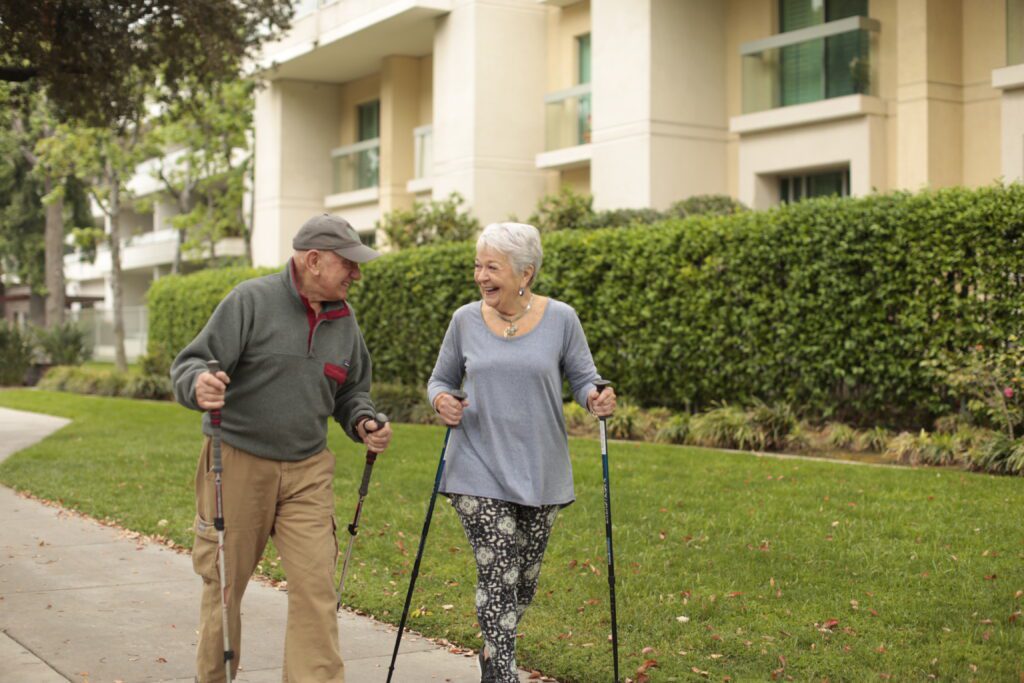November 14, 2024
The Ultimate Nutritional Guide for Seniors: Ensuring Optimal Health in Older Adults in Pasadena, CA

The Importance of Nutrition for Seniors
Proper nutrition is pivotal in supporting your physical and mental health as you navigate the golden years. A well-balanced diet can:
- Boost your vitality, allowing you to engage in activities you enjoy.
- Strengthen your immune system, preventing illnesses and infections.
- Promote healthy aging by providing essential nutrients for keeping muscle mass, bone density and cognitive function.
- Manage or avoid chronic conditions like diabetes, heart disease and osteoporosis.
Common Nutritional Challenges for Older Adults
As we age, our bodies undergo various changes that can impact our nutritional needs and eating habits. Some common challenges faced by seniors include:
- Decreased appetite: Hormonal changes, medications and reduced physical activity can contribute to diminished appetite, which can lead to inadequate nutrient intake.
- Difficulty chewing or swallowing: Dental issues or certain medical conditions may make it challenging to consume certain foods, potentially limiting dietary variety.
- Altered sense of taste and smell: Age-related changes in these senses can affect the enjoyment of food, leading to poor dietary choices.
- Mobility limitations: Reduced mobility can make grocery shopping and meal preparation more difficult, tempting seniors to rely on convenient but less nutritious options.
Recognizing these difficulties is the first step to addressing them and ensuring you maintain a balanced and enjoyable diet throughout your golden years.
Healthy Eating Tips for Seniors
- Prioritize nutrient-dense foods: Focus on consuming fruits, vegetables, whole grains, lean protein and healthy fats to ensure you’re getting essential vitamins, minerals and other nutrients.
- Stay hydrated: Adequate hydration is crucial for older adults. Aim to drink water regularly during the day and incorporate hydrating foods like soups, fruits and vegetables into your meals.
- Embrace portion control: As metabolism slows with age, it’s crucial to be considerate of portion sizes to keep a healthy weight and avoid overconsumption of calories.
- Modify textures: If you experience difficulty chewing or swallowing, consider pureeing or chopping foods into smaller pieces to make them easier to consume.
- Enhance flavors: Experiment with herbs, spices and healthy seasonings to add flavor and excitement to your meals, compensating for any changes in taste or smell.
- Stay active: Regular exercise can help stimulate your appetite and improve digestion, contributing to better overall nutrition.

Key Nutrients for Optimal Health in Seniors
A well-balanced diet is important for overall well-being, but certain nutrients are essential for seniors. Here are some key nutrients to prioritize:
- Protein: Adequate protein intake is crucial for keeping muscle mass, strength and overall health. Good sources include lean meats, fish, eggs, legumes and dairy products.
- Calcium and Vitamin D: These nutrients support strong bones and prevent osteoporosis. Dairy products and leafy greens are great sources of calcium, while vitamin D can be gained from sunlight exposure, fatty fish and fortified foods or supplements.
- Fiber: Fiber aids digestion, promotes regularity and may help manage conditions like diabetes and heart disease. Add whole grains, fruits and legumes to your diet for a fiber boost.
- Antioxidants: Antioxidants in fruits, vegetables and certain beverages, like green tea, can help protect cells from damage and reduce the threat of diseases.
- Omega-3 fatty acids: These healthy fats, in fatty fish, walnuts and flaxseeds, can support brain health, reduce inflammation and promote heart health.
- B vitamins: Crucial for energy production, red blood cell formation and cognitive function, can be obtained from whole grains, leafy greens and lean proteins.
The Role of Hydration in Senior Nutrition
Proper hydration is a crucial yet often overlooked aspect of senior nutrition. As we age, our sense of thirst can diminish and certain medications or medical conditions may increase the risk of dehydration. Adequate hydration offers numerous benefits, including:
- Improved digestion and nutrient absorption: Water aids in the breakdown and absorption of nutrients from foods.
- Regulated body temperature: Staying hydrated helps your body maintain a healthy temperature, especially during hot weather or physical activity.
- Cognitive function support: Dehydration can impair cognitive abilities, contributing to confusion, memory issues and decreased alertness.
- Constipation prevention: Sufficient water intake helps promote regular bowel movements and prevents constipation, a common issue among older adults.
Meal Planning for Older Adults
Proper meal planning can be a game-changer for seniors, ensuring you receive the necessary nutrients while accommodating dietary restrictions or preferences. Here are some tips for meal planning:
- Create a weekly meal plan: Plan what you are eating for the week, considering your nutritional needs, preferences and any special dietary requirements.
- Incorporate variety: Aim for a diverse range of foods from different food groups to ensure you get a wide array of nutrients.
- Batch cook and freeze: Prepare larger portions of meals and freeze individual servings for easy reheating, reducing the need for frequent cooking.
- Involve loved ones: Ask for the help of family and friends in meal preparation, grocery shopping, or sharing meals, making it a social and enjoyable experience.
- Consider meal delivery services: If cooking becomes challenging, explore meal delivery services that cater to senior dietary needs, providing nutritious and convenient options.
- Stay organized: Stock your pantry and refrigerator with healthy staples and plan your grocery trips accordingly to ensure you have the necessary ingredients on hand.
Prioritizing Nutrition for a Healthy and Happy Senior Lifestyle
You can unlock the key to a more fulfilling and vibrant retirement experience by prioritizing your nutrition. Nourish your body, mind and soul, and start a journey of active aging and well-being. Check out our community if you or your loved one is looking for an active senior living in Pasadena, CA. At Villa Gardens, we understand the importance of nutrition for our residents’ well-being. Our dedicated team works tirelessly to provide delicious and nutritious meals tailored to the unique needs of our senior community. Contact us today at (626) 463 5300 to schedule a tour and take the initial step towards a healthier, happier you.
Read Our Front Porch Blogs

Front Porch Podcast – Episode 8: Belonging: The Heart of Community—with Arthur Liggins & Candace Young-Schult

Front Porch Podcast – Episode 7: Commander Beth Coye: A Warrior for Equality

